Ever wondered what frigid temperatures could do to vehicles? The cold season is a tough time for everyone. Unlike us, cars cannot bundle themselves up in heavy coats during cold or sub-zero weather conditions.
Whether you keep your car on the street or safely inside the garage, it is important to know the harmful effects that the cold weather can do to your car.
If you’re not cautious, the cold can certainly cause unwanted damage. Here are some common car problems that are generally encountered during the cold weather and some tips on how to prevent them from happening, brought to you by Philkotse.com.
1. Dead Battery
Cold climate is particularly hard on vehicle batteries. Dead or dying batteries cause a large percentage of roadside assistance calls during the cold season. The Car Care Council suggests keeping its connections tight, clean and rust free. It's is better to get your car battery tested than being caught off guard later on.
Car experts say that extreme cold pulls the voltage from our car battery. This makes it harder to start up. A normal battery is most compatible between temperature ranging between 30 and 90 degrees Fahrenheit. Anything below that range will definitely cause problems.
To ensure that your vehicle will still start during subzero conditions, it would be best to keep it in your garage. If you do not have one, then it is best to get it checked before the cold weather season. Is your car battery over three years old? Consider buying a new one before the cold weather starts to kick in.
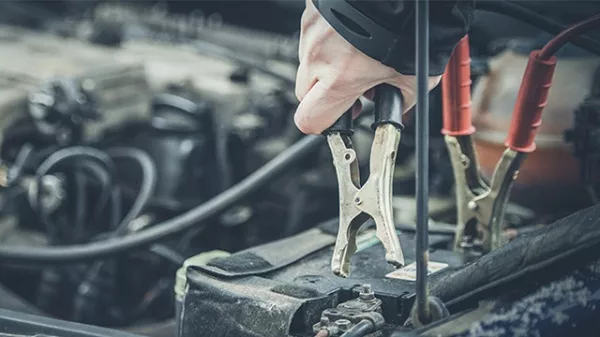
Dead or dying batteries cause a large percentage of roadside assistance calls during the cold season
>>> Read more: Will a dead and dying battery destroy your cars’ alternator?
2. Thickened Fluids
During dropping temperatures, fluids tend to thicken or become less viscous. This makes it difficult for your car to have the amount it needs to run correctly. To be one step ahead, find the take time to check all your fluids. This includes antifreeze, oil, power steering, brake and most especially transmission fluids.
This particular fluid needs to flow quickly. Your car will not function at all if it flows at a slow pace. To prevent this from happening, you can try leaving your car's engine running for at least 10 minutes to warm up the fluids. You can also change your car fluids ahead of time.
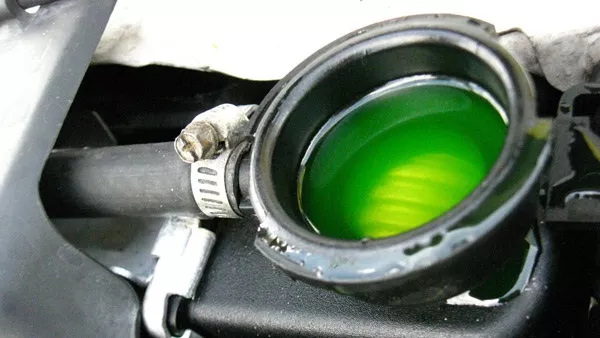
During dropping temperatures, fluids tend to thicken or become less viscous.
3. Tire Pressure
The tire pressure of your car can fluctuate when temperatures go down. Your tires become underinflated due to the cold air. Underinflated tires do not perform well and can lead to a blow out too. This is very dangerous, so it is advisable to have your tires checked in advance.
Take note that car tire maintenance issues are not usually covered by insurance. You can also review the insurance policies with your agent. You certainly do not want to incur any damage that they will not cover.
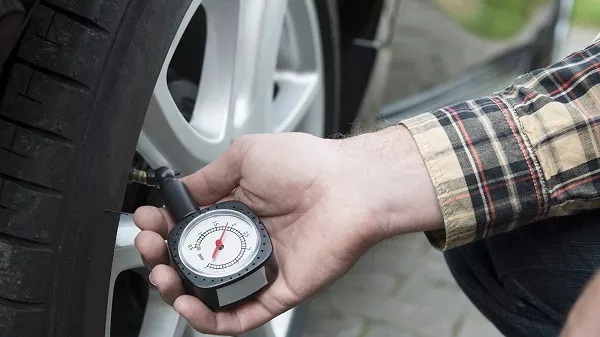
The tire pressure of your car can fluctuate when temperatures go down.
>>> Related post: 5 common car tire myths that have finally been debunked
4. Wiper Failure
This is another common problem during cold weather. Expect that your wipers and washer solvent will malfunction. Colder temperatures can make the rubber on wiper blades to become prone to breakage with washer fluids will not function properly either.
Outrageous climate additionally abrogates your washer fluids freezing points. Thankfully, there are a lot of preventive measures that you can take to avoid this. Before turning on your wipers, make sure to clean the windshield first. Check your wipers to see if they still in good shape. Purchasing wipers that are designed for harsher weather can also help.
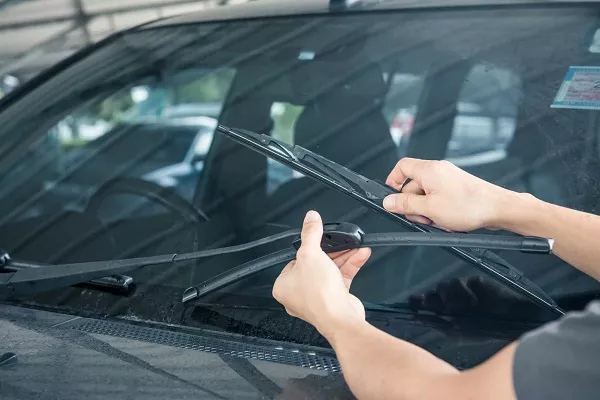
Colder temperatures can make the rubber on wiper blades to become prone to breakage with washer fluids will not function properly either.
5. Leakages
It is very alarming to see fluid leaking from your car. One should be cautious particularly on leaks in the steering and brake system since this can be potentially dangerous when a malfunction happens.
It is better to flush all the fluids beforehand and warm your car up before going for a drive. Getting these leaks repaired early will prevent car engine and transmission damage which are really expensive.
6. Weakened Spark Plug
Cold weather also causes weaken spark plug reliability. A clogged filter, bad spark plug or ignition component can definitely cause start-up problems. Make sure your car is in top shape before the cold season. Check-ups and regular maintenance can help in preventing this.
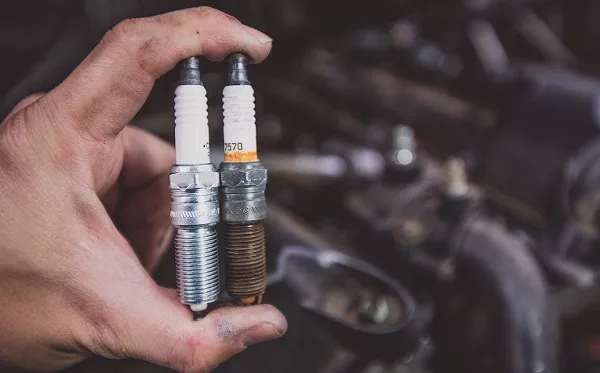
Cold weather also causes weaken spark plug reliability
7. Radiator Issues
One part of the vehicle that we often overlook is the radiator. Your car’s radiator can also be significantly affected by cold weather and can lead to severe problems too. Radiators tend to contract. This strains your hoses and hose clamps resulting in possible coolant leakage.
The part that is mostly affected by cold weather is your vehicle’s cooling system. Since your radiator has a ton of coolant circling through it, the conspicuous impact of frigid temperatures is the fractional or complete freezing of your coolant.
Coolant is not the same as antifreeze, which is designed to lower the freezing point of the circulating liquid.
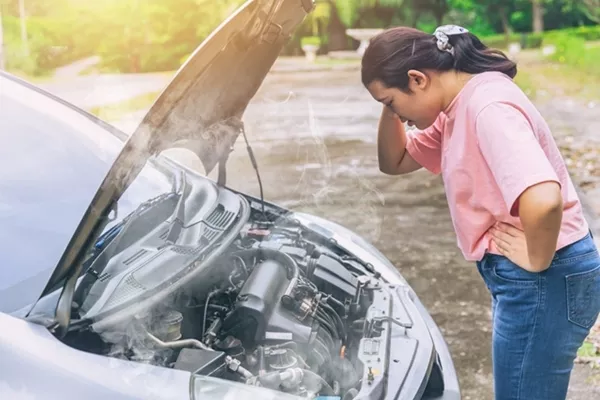
Once the radiator lacks or is emptied out of fluid, your car’s engine might be left to overheat
Making sure that your coolant levels are topped up is essential. Getting your radiator checked before the cold season kicks in is highly recommended to prevent any further costly damage to your vehicle.
>>> Worth to note: The Safest Way on How to Put Water in a Car Radiator & Other Essential Facts
8. Lethargic screens
Just like the battery’s electrolyte and the engine’s oil, molecules in liquid crystals slow down when the temperature gets colder. You might notice a change in your car's liquid crystal display or LCD screens.
They tend to become a little sluggish than usual. There is not much that you can do about this one, but you can try to install an engine block heater to speed things along.
Take time to prepare. There are indeed many problems that affect our vehicles whenever the weather is cold, but there are also a lot of ways for us to prevent it. You can start by evaluating the car yourself.
Check the windshield wipers, engine coolant and antifreeze levels, the tires and other parts to identify which ones are already starting to wear off.
Maintenance check-ups are extremely important. Have your battery tested and inspect headlights and brake lights too. Bear in mind, being one step ahead can save us all the stress and potentially the costs of further damage to our cars. Most importantly, taking these preventive measures can contribute to our safe driving.
Follow Philkotse.com for more useful car maintenance tips and keep your beloved vehicle in healthy condition!
Recent posts
- 6 steps to safely replace your car battery Jun 21, 2018
- Distilled water vs Coolant: Which is the best product for your radiator? Mar 06, 2021
- Driving under stormy weather: A driver’s must-know Dec 05, 2017
- How to reduce fuel consumption in the cold weather? Nov 18, 2022
- Which parts are most heavily affected by draining your car’s fuel tank? Oct 12, 2017












